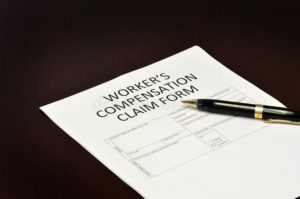Florida Construction Licensure and Worker’s Compensation
By Christopher M. Cobb May 28, 2019 Posted in Construction Law Share
The construction industry and trades can be dangerous at times, especially if you employ dozens of workers and labors who are on top of a roof or working heavy machinery. Injuries can and do happen. Under Chapter 489.114, if you want to become a licensed contractor in Florida, you will need to provide evidence of workers’ compensation coverage in order to obtain your license. This blog post will discuss the requirement of worker’s compensation for initial and renewal licensure.
What is required?
Florida’s Construction Licensing laws require any person, business organization, or qualifying agent engaged in the business of contracting in Florida and as a condition precedent to the issuance or renewal of a construction license provide to the Construction Industry Licensing Board evidence of workers’ compensation coverage under chapter 440, Florida Statutes. Additionally, Not all companies need or require worker’s compensation, so Section 489.115 (5)(d) allows the construction license applicant to provide an exemption by submitting an affidavit attesting to the fact that the application will obtain the exemption not more than 30 days after the CILB grants the applicant his/her license.
Workers Compensation Insurance
In the event that the Divis ion of Workers’ Compensation of the Department of Financial Services receives notice of the cancellation of a policy of workers’ compensation insurance insuring a license holder or their qualified entity, the Division of Workers’ Compensation shall certify and identify all persons or entities by license number to the DBPR. The Division of Workers Compensation shall make a verification that the licensed persons or entities are no longer covered by workers’ compensation insurance. This certification and verification by the Division of Workers’ Compensation may result from records furnished to the Division of Workers’ Compensation or by an investigation completed by the Division of Workers’ Compensation. The DBPR shall then notify the licensed persons or entities who have been determined to be in noncompliance with chapter 440, and the licensed persons or entities notified shall be required to provide certification of compliance with chapter 440 to the department and pay an administrative fine in the amount of $500.
ion of Workers’ Compensation of the Department of Financial Services receives notice of the cancellation of a policy of workers’ compensation insurance insuring a license holder or their qualified entity, the Division of Workers’ Compensation shall certify and identify all persons or entities by license number to the DBPR. The Division of Workers Compensation shall make a verification that the licensed persons or entities are no longer covered by workers’ compensation insurance. This certification and verification by the Division of Workers’ Compensation may result from records furnished to the Division of Workers’ Compensation or by an investigation completed by the Division of Workers’ Compensation. The DBPR shall then notify the licensed persons or entities who have been determined to be in noncompliance with chapter 440, and the licensed persons or entities notified shall be required to provide certification of compliance with chapter 440 to the department and pay an administrative fine in the amount of $500.
Penalties
The penalties can actually be more serious. The failure to maintain workers’ compensation coverage as required by Chapter 489 and 440 can be grounds for the Construction Industry Licensing Board to revoke, suspend, or deny the issuance or renewal of a construction license. Also, it is very important to make sure that as a licensed contractor you are in and maintain compliance with Chapter 489.
For more information on construction licensing issues, contact a Cobb & Gonzalez attorney at info@cobbgonzalez.com.
Follow us on LinkedIn.

